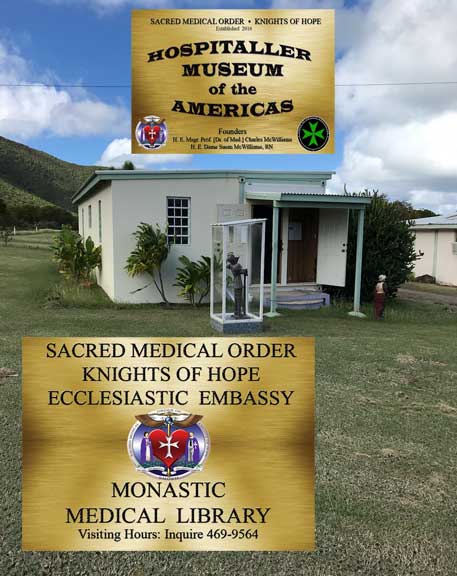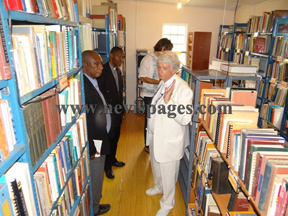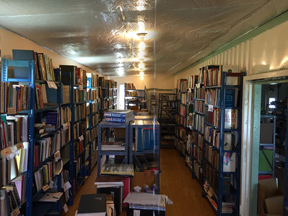PanAm Monastic Education
 I have been teaching various forms and modalities of medicine, both Eastern and Western, since the 1970's. I can say all forms of medicine have their benefits and short-comings. The pivotal change in medicine came from two scientific advancements: 1. the discovery of the microscope; and 2. the syncretic advance of the luminiferous aether which brought us commercial electricity and radiowave broadcast. These two advancements led to the understanding of the world of microbes (and thus disease) and the structure of both the physical atom and its subquantum particle world (called ch'i or prana). For centuries, the invisible world has been speculated upon in religion, metaphysics, and the occult. From a scientific viewpoint, it has become obvious that many of the operatives of the macroscopic world do not apply to the microscopic world.
I have been teaching various forms and modalities of medicine, both Eastern and Western, since the 1970's. I can say all forms of medicine have their benefits and short-comings. The pivotal change in medicine came from two scientific advancements: 1. the discovery of the microscope; and 2. the syncretic advance of the luminiferous aether which brought us commercial electricity and radiowave broadcast. These two advancements led to the understanding of the world of microbes (and thus disease) and the structure of both the physical atom and its subquantum particle world (called ch'i or prana). For centuries, the invisible world has been speculated upon in religion, metaphysics, and the occult. From a scientific viewpoint, it has become obvious that many of the operatives of the macroscopic world do not apply to the microscopic world.
The energy constant postulated by Max Planck in 1900 as a proportionality constant, needed to explain experimental black-body radiation, the photon and chemical bond, what Planck later referred to the constant as the "quantum of action". The microscopic world of viruses, bacteria and protozoa continues to be speculated upon, but nothing has really come close to what was advanced and then suppressed by the findings of Antoine Bechamp, Gunther Enderlein, and Wilhelm Reich (and their followers). For that reason, these are the first two subjects we teach, as failure to understand quantum physics as applied to biology; and symbiogenesis as applied to disease, are the pivotal concepts to walk away from the morass of confusion wrought by standard medical education.
Monastic education is deeply rooted in spiritual and
religious values complexed with academic learning. It aims to cultivate spiritual growth, moral virtues,
and focuses on the ancient religious, metaphysical
texts and traditions. Secular universities, on the
other hand, are based on a secular ideology that emphasizes scientific
inquiry, critical thinking, and rational inquiry to the point of cultism and scientism. They do not provide a
broad-based education without a specific rigorous foundation on modern beliefs, focusing
only on current academic disciplines and beliefs. Scientism is a philosophical stance that emphasizes the primacy of
scientific knowledge and methods as the sole or superior means of
understanding the world and reality, irregardless of shortcomings.
 Sacred Medical Campus Library - Nevis, West Indies
Sacred Medical Campus Library - Nevis, West IndiesSince the 1970's, a huge collection of books on traditional, natural, and indigenous medicines has been collected by the University's founder and hundreds of the books have been archived and digitized on online viewing for members and students. Many of the essential texts are linked in our online courses as Textbooks and Supplements making our courses generally all-inclusive.


-- Max Müller, Introduction to the Upanishads Vol. II.[ He was a German-born philologist and Orientalist, who lived and studied in Britain for most of his life. He was one of the founders of the western academic field of Indian studies and the discipline of Study of religions (science of religion, Religionswissenschaft)
This online library is member-available archive of electronic texts about medicine, metaphysics, nature cure, religion, mythology, legends and folklore, and many esoteric topics. Texts are presented in English and, where available, in the original language.
PanAm as an ecumenical university of natural science, promotes medicines; scientific, philosophic, and religious studies; academic research, free speech and scholarship. Views expressed at this site are solely those of specific authors, and are not necessarily endorsed by PanAm.
Online texts, graphics, recordings, audio and video, are provided to enhance learning of course
content in the tradition of fair use and dealing doctrine for the purposes of non-commercial research or study. As a post-graduate, nonprofit religious
institution, all courses have certain requisites, implied and/or
required for successful completion. The student is encouraged to exercise due diligence, research and study in the monastic tradition,
We are an ecumenical school, further we do not function to impose nor require ideologies. A university (Latin: universitas, 'a whole') is an institution of higher (or tertiary) education and research which awards academic degrees in various academic disciplines. The word university is derived from the Latin universitas magistrorum et scholarium, which roughly means "community of teachers and scholars"]The modern university system has roots in the European medieval university, which was created in Italy and evolved from cathedral schools for the clergy during the High Middle Ages. An important idea in the definition of a university is the notion of academic freedom. We adhere to that tradition.
